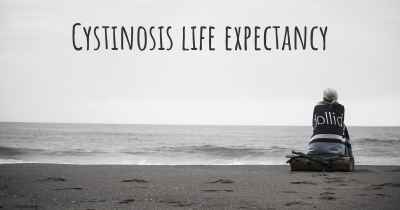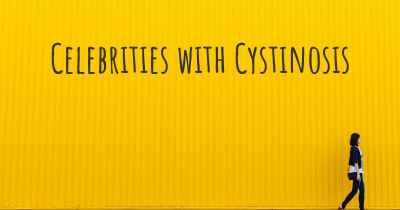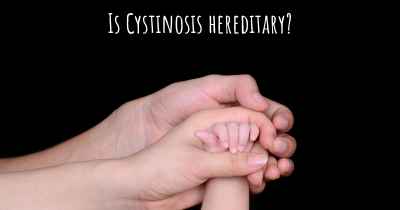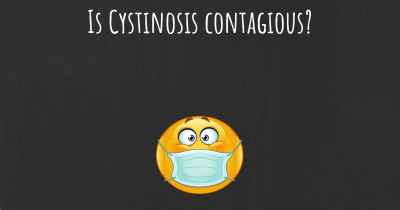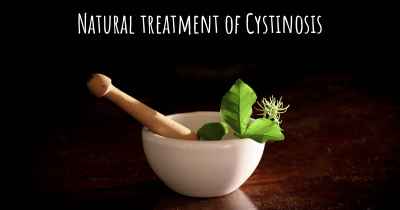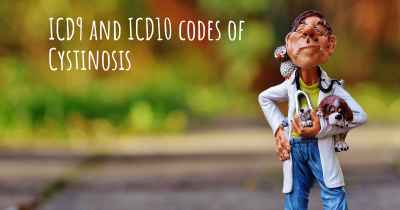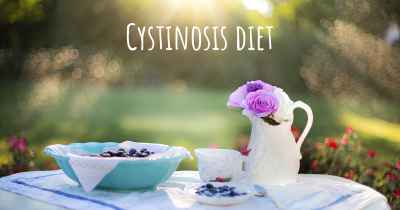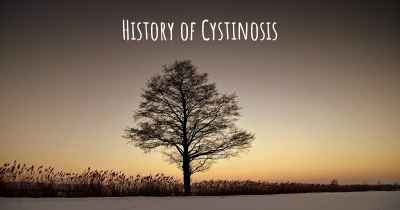Living with Cystinosis. How to live with Cystinosis?
Can you be happy living with Cystinosis? What do you have to do to be happy with Cystinosis? Living with Cystinosis can be difficult, but you have to fight to try to be happy. Have a look at things that other people have done to be happy with Cystinosis

Living with Cystinosis
Cystinosis is a rare genetic disorder that affects the body's ability to transport the amino acid cystine out of cells. This leads to a buildup of cystine crystals in various organs, causing damage over time. Living with cystinosis can be challenging, but with proper management and support, individuals with this condition can lead fulfilling lives.
Medical Management
One of the most crucial aspects of living with cystinosis is adhering to a comprehensive medical management plan. This typically involves regular visits to a specialized healthcare team, including nephrologists, ophthalmologists, and other specialists. The primary goals of medical management are to slow down the progression of the disease and manage its symptoms.
Medication: The cornerstone of cystinosis treatment is cystine-depleting therapy. This involves taking medications such as cysteamine, which helps reduce cystine buildup in the cells. It is essential to follow the prescribed medication regimen strictly and maintain regular check-ups with your healthcare team to monitor the effectiveness of the treatment.
Fluids and Nutrition: Individuals with cystinosis may have difficulty maintaining proper hydration and nutrition due to kidney dysfunction. It is crucial to work closely with a registered dietitian to develop a balanced diet plan that meets your specific needs. Staying well-hydrated and following a nutrient-rich diet can help support overall health and manage potential complications.
Kidney Function: Cystinosis often leads to kidney dysfunction, and some individuals may require kidney transplantation at some point in their lives. Regular monitoring of kidney function through blood and urine tests is essential to assess the progression of the disease and determine the appropriate time for transplantation, if necessary.
Eye Care
Cystinosis can also affect the eyes, leading to a condition called cystinosis-related corneal crystal accumulation. Proper eye care is crucial to prevent vision problems and maintain eye health.
Eye Drops: Your ophthalmologist may prescribe lubricating eye drops or ointments to help alleviate dryness and discomfort caused by corneal crystal accumulation. These drops can help keep the eyes moist and reduce the risk of corneal damage.
Regular Eye Exams: Routine eye exams are essential to monitor the progression of corneal crystal accumulation and detect any other eye-related complications. Your ophthalmologist will determine the frequency of these exams based on your specific needs.
Psychosocial Support
Living with a chronic condition like cystinosis can have a significant impact on mental and emotional well-being. It is essential to seek psychosocial support to cope with the challenges and maintain a positive outlook.
Support Groups: Connecting with others who have cystinosis or other chronic illnesses can provide a sense of community and understanding. Support groups, either in-person or online, can offer a platform to share experiences, exchange advice, and find emotional support.
Counseling: Individual or family counseling can help navigate the emotional aspects of living with cystinosis. A trained therapist can provide coping strategies, address any anxiety or depression, and assist in developing a resilient mindset.
Education and Advocacy
Education and advocacy play a vital role in living with cystinosis. By increasing awareness and understanding of the condition, individuals can empower themselves and others.
Stay Informed: Stay up-to-date with the latest research and advancements in cystinosis management. Knowledge about the condition can help you make informed decisions about your treatment and care.
Advocate for Yourself: Be an active participant in your healthcare journey. Communicate openly with your healthcare team, ask questions, and voice any concerns or preferences you may have. By advocating for yourself, you can ensure that your needs are met and receive the best possible care.
Living with cystinosis requires a multidimensional approach that encompasses medical management, eye care, psychosocial support, and education. By actively engaging in your care and seeking support, you can lead a fulfilling life while managing the challenges associated with this rare genetic disorder.
Posted Feb 27, 2017 by Todd 1200
